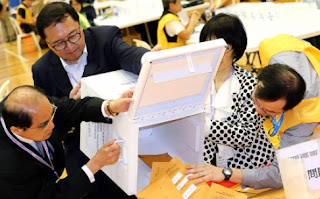Teachers should embrace a radical pedagogy and provoke students to demand equality for themselves and others, argues Tait Coles
--
The pedagogy popularised by E.D.Hirsch, and recently promoted by the likes of Civitas, reduces teaching into nothing more than a bleak transmission model of learning.
Hirsch's theory focuses on what he calls "cultural literacy". He argues that all students need a "core knowledge" so they can develop into better citizens. In one of his books, he lists various facts, phrases and historical events that he believes all young Americans should be aware of, including the Founding Fathers and Adirondack Mountains.
The pedagogy popularised by E.D.Hirsch, and recently promoted by the likes of Civitas, reduces teaching into nothing more than a bleak transmission model of learning.
Hirsch's theory focuses on what he calls "cultural literacy". He argues that all students need a "core knowledge" so they can develop into better citizens. In one of his books, he lists various facts, phrases and historical events that he believes all young Americans should be aware of, including the Founding Fathers and Adirondack Mountains.
















